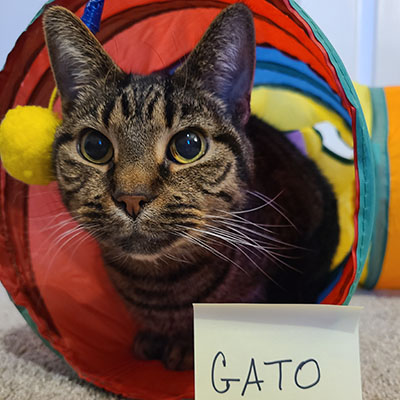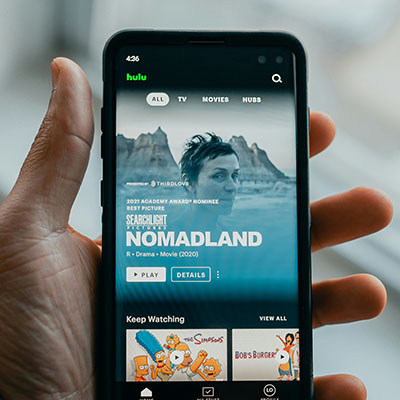The 10 Best Ways to Learn a Foreign Language
Travel Team | Jan 31, 2024

The window into someone else’s world opens widest when you understand how to communicate in his or her language. A little bit of language goes a long way. Just a few words in another tongue can get you to the bathroom, order you a meal, and connect with people on deeper levels.
There are as many ways to learn a language as there are languages: conversation groups, private tutors, travel apps, formal foreign language classes at a school, and the list goes on. But these can be expensive, not to mention not everyone learns in the same way, and some of these methods might be downright painful to you (we see you, introverts who can’t stand the small talk in a conversation group).
The good news is that there are other options. The 10 ways to learn a language we offer below can be combined and altered to fit your brain’s desire. Be patient with yourself, have fun with it, and enjoy the opportunities a new language can provide.
How to Learn a Foreign Language
1. Keep a notebook with accompanying flashcards.
More than the rules of grammar and syntax, which in some languages can be explained and understood conceptually in a few days, it's the memorization of vocabulary that pushes many language learners off the cliff of frustration.
To overcome this obstacle, keep a notebook (or a digital equivalent) and write in it all the words you have learned, slowly adding the new words you want to learn. Some language notebooks are cleanly separated into categories based on meaning and some are chicken-scratched pages that list words whenever you encounter them.
 Then make a flashcard for every vocabulary word you have in your notebook. Try to review that deck every day, going from the foreign side to the English. Set aside in a new pile every card that stumped you. When you finish, go through that pile of words you missed and repeat the process until you've gotten them all.
Then make a flashcard for every vocabulary word you have in your notebook. Try to review that deck every day, going from the foreign side to the English. Set aside in a new pile every card that stumped you. When you finish, go through that pile of words you missed and repeat the process until you've gotten them all.
Next, go through the whole deck again reading the English side first and translating each word into the foreign counterpart. Repeat the same process as above. Don't set down the deck until you've translated each card correctly from both sides.
This may seem like a daunting daily task, but it gets to be a much quicker process with time. Soon you'll have memorized hundreds of words and will be able to breeze through a thick stack of cards in minutes. Plus, it’s a great way to learn a foreign language on your own. No conversation partner necessary.
2. Label everything with Post-Its.
Put labels with an object’s foreign name on your household furniture. Put them on your food. Your body parts. If she's willing, put them on your cat. If you’re learning Korean, put “바나나” on your bananas.
People may question why you have the Arabic “باب” written on your door. But this is between you and the language you want to learn. So go wild and post notes with key vocabulary terms all over your life.
3. Talk to yourself.
In Buddhist mindfulness practice, there is an exercise in which a student keeps a running inner monologue about everything they do. If they make tea, that sounds like, "Opening cupboard. Reaching for mug. Touching mug. Filling pot. Turning on stove. Placing pot."
A day of this drives some novice monks crazy, but if you change your narration to the language you’re learning, it becomes a way to practice not only nouns — and all those items you’ve labeled in number 2 — but also verbs. One great place to start this practice is when you’re cooking alone in the kitchen.
4. Date someone who speaks that language.

This one's for the people traveling solo through life. The reason this piece of advice gets repeated so often is because it works. It allows for frequent one-on-one conversations with a supportive partner, and nothing beats talking with someone who’s a native speaker of another language.
If you’re already coupled up or happily single, don’t worry. You can just be friends. Or find a language exchange partner online. Couchsurfing has hordes of forums for people who want to find a language exchange partner over Skype.
5. Get musical.
Listen to songs in the language you’re learning and read the lyrics. Look up any vocabulary you don’t know. Whenever you need any of these words in the real world, odds are you will be able to find them in the song you’ve listened to on repeat. It’s also a great way to learn slang and other … colorful language.
6. Binge watch television and movies.
If you’re just starting your language journey, you might start with a show or movie you already know. Turn on subtitles for even more assistance. Even if you don’t understand every line, you’ll get used to the tone and flow. Things you missed the first few episodes will start to make sense later as your ear adjusts.
“When I was studying abroad in Spain, I worked my way through several
seasons of Friends,” said Seven Corners travel writer Grace Lower. “The
majority of my viewings were in Spanish. Watching a familiar show was
comforting, but practicing my Spanish comprehension skills kept me on my
toes. Even if you don’t catch every word, sitcoms like Friends are just
as funny in a foreign language.”
 Luke Armstrong recommends watching cartoons, many of which might be familiar from your childhood. There are pros and cons to this route, though. Some of the voices and speech patterns of cartoon characters can make it difficult to follow dialogue. But because they know their youthful audience is also learning, some shows intentionally make characters speak more slowly and use more basic words (Patrick from SpongeBob SquarePants is one of the easiest to follow). Find the cartoon that works best for you.
Luke Armstrong recommends watching cartoons, many of which might be familiar from your childhood. There are pros and cons to this route, though. Some of the voices and speech patterns of cartoon characters can make it difficult to follow dialogue. But because they know their youthful audience is also learning, some shows intentionally make characters speak more slowly and use more basic words (Patrick from SpongeBob SquarePants is one of the easiest to follow). Find the cartoon that works best for you.
7. Check out YouTube.
While YouTube has its share of utterly bizarre content, there are countless international channels with videos spanning all genres. Grace has found that YouTube is a great way to practice listening comprehension, since it showcases a variety of accents and dialects from the content creators.
From home repair to makeup tutorials, foreign-language videos cover a variety of topics. The short length of the videos, along with the ability to pause and rewind if you missed something, makes YouTube a useful platform for learning your second language.
8. Change your device settings.
We wouldn't recommend this to beginners of a language, but as you progress in your learning, you might reach a point when it's time to change your phone, TV, computer, and other devices to your new language.
It's basically a guarantee that after a few months you'll know how to speak basic phoneish in your target language and will have mastered words like contacts, space, enter, email, calculator, airplane mode, notes, music, camera, and maps. Your newfound vocabulary will also provide a good starting point if you need to get your computer or phone fixed while you’re abroad.
A word of advice, though: make sure you know the click path to revert your settings.
9. Buy a copy of your favorite book or magazine.

Another low-stakes way to practice your second language is to read something familiar in that language. When you pass a bookstore or newsstand in your host country, try to find a copy of your favorite book or magazine in the native language. Re-reading Harry Potter, leafing through a lifestyle magazine, or catching up on sporting news are easy ways to build basic vocabulary. Even magazine ads can be useful for learning new adjectives.
10. Take advantage of snack time.
This is probably the most fun of all the tips, especially if you’re already overseas as a digital nomad or studying abroad. Take a solo trip to a grocery store or market to learn the names of your favorite foods (and discover some new ones you want to try). Jot them down in a pocket-sized notebook or add them to a note on your phone.The produce section, with its clear labels and large-print signs, is especially useful for building food-based vocabulary. The pictures on snack food packaging can also give you vocab clues. Alternatively, visit a bakery or an ice cream shop to get a crash course in common flavors. Learning the words for “chocolate,” “vanilla,” or “berry,” will serve you well, especially when you’re craving something sweet. Once you’ve sufficiently expanded your food-related vocabulary, treat yourself to the snack of your choice!
Travel Insurance and Assistance for Language Trips
At some point, words may simply fail you. You get tired or you’re sick and don’t know the Flemish word for “ankle sprain.” For those times when your trip doesn’t go as expected, that’s why you have travel insurance with a company like Seven Corners that also provides travel assistance services. As part of those services, we can connect you with translation support in an emergency or other medical situations.
Get an easy quote online or talk to a licensed agent to get the right protection – and travel assistance – before you hit the road to practice those new language skills.
About the Authors
Luke Armstrong and Grace Lower have decades of travel experience between the two of them. They have routinely shared their expertise with Seven Corners through articles like this one. This tip sheet was also edited by Becky Hart.
Search Posts
Receive our monthly inspiration and travel tips from the travel insurance experts.
Sign me upThis website and various social media updates provided by Seven Corners contain content, information, articles, videos, and links to websites created by third parties. Seven Corners, its owners, and its employees neither endorse nor are responsible for the accuracy, timeliness, or reliability of any third-party information, statements, opinions, or advice and are not liable for any loss, harm, or damage caused by your reliance upon them. Use of such information or the linked websites is entirely at your risk. Concerns regarding this third-party content should be directed to the third party. Seek professional advice, as appropriate, regarding your use of such information and websites.
Because the information on this website and in Seven Corners’ blogs and other social media is written and compiled using knowledge and information available at a certain point in time, it may become outdated. For that reason, information, events, legal requirements, and product changes (including benefits, limitations, exclusions, and services) may not be up-to-date, complete, or accurate at the point in time it is being read. Again, use of such information is at your risk.
